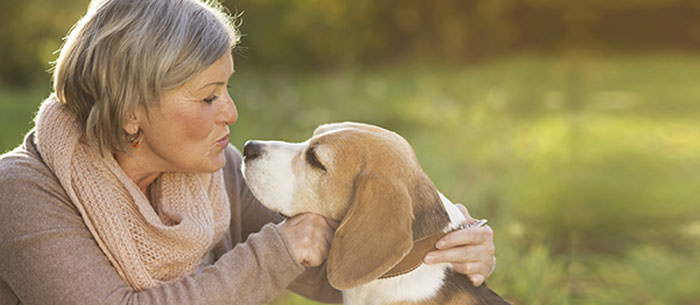We all love our four-legged cuddly companions. From dogs to cats to rabbits to iguanas, pets add immeasurable value to all of our lives. But did you know they can be especially helpful as people age?
“The elderly can benefit from the wellness advantages of pet ownership, which include increased physical activity, enhanced cardiovascular functioning and a reduced risk of obesity,” says Yasmine S. Ali, M.D., M.S.C.I., F.A.C.C., F.A.C.P., president of Nashville Preventive Cardiology, PLLC. Yet, as important as these assets are, pets offer so much more.
“Seniors often feel lonely and somewhat isolated, so a loving pet can offset these negative emotions, bringing them much comfort and joy,” notes Lisa Bahar, L.M.F.T., L.P.C.C., licensed family therapist and professional clinical counselor.
Here are some of the many reasons the elderly need pets and how they benefit from the animal relationship.
- Promote Increased Physical Activity
“It is important for seniors to walk or engage in some type of physical activity regularly,” states Dr. Ali. “Numerous studies have found that people of all ages who care for pets tend to be more active.” For example, in research published in the American Journal of Preventive Medicine, dog owners walked an average of 2.2 hours more per week than those without a dog. And many people increase their activity levels specifically to meet the exercise needs of their pets.Read more about Exercise and Fitness for Seniors.
- Provide Emotional Support
“When people age, they many times feel unappreciated, disregarded or left behind,” explains Ms. Bahar. “Pets serve as a support system, providing lavish amounts of acceptance and validation.”Pets can help an elderly person know that they still matter — a lot.
- Boost Cardiovascular Health
People who care for pets often have lower blood pressure, improved cholesterol levels and better heart health, says Dr. Ali. The American Heart Association even issued a scientific statement in 2013. Research published in The American Journal of Cardiology says that heart attack patients are four times less likely to die if they have a dog.
- Offer Companionship
“As the elderly suffer the loss of a spouse or the loss of friends, they can experience a painful void,” observes Ms. Bahar. Having a pet as can help fill this void — and help social interactions with other people. “For instance, many seniors that I work with have a ritual of walking around the harbor, a practice that provides natural opportunities to greet and become acquainted with other pet owners,” she says.
- Help With Weight Control
“Because people who have pets tend to be more physically active, they are less likely to be obese,” declares Dr. Ali. A study in Preventive Medicine shows that dog walking in particular is associated with a lower body mass index, which means a lower incidence of obesity. Participating in physical activity with a dog, cat or other pet is not only fun, but it also helps keep weight in check for both humans and pets.
- Calm Emotions
“Sadly, some elderly people get very few hugs and seldom are blessed with the emotionally healing power of human touch,” muses Ms. Bahar. “Petting a dog or a cat provides the calming sensation of touch that is mutually enjoyable to both the pet owner and the pet. To touch and to be touched is essential for humans, and pets can serve to meet this need if the individual is alone.”
Pets are profoundly therapeutic in every sense of the word, and thus they almost always enhance the overall well-being of their owners. As long as a senior is physically able to care for pets, they are certain to enrich his or her life considerably.
Mary West is a pet lover with a weakness for dachshunds. She is also a freelance writer whose work has appeared in an array of online publications.





